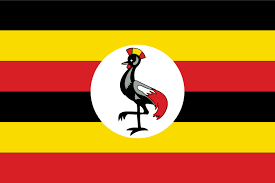Ethical Commitments of the Ministry of Water and Environment, Uganda
1. Zero Tolerance to Fraud & Corruption
The Ministry rigorously upholds a zero-tolerance policy for fraud and corruption, fully aligned with Uganda’s national legal frameworks—including the Anti-Corruption Act (2009), Whistleblowers Protection Act (2010), Public Finance Management Act (2015), and others—and collaborates with institutional bodies such as the Inspectorate of Government and Directorate for Ethics & Integrity.
2. Environmental & Social Due Diligence
The Ministry proactively identifies, minimizes, and mitigates potential negative environmental and social impacts tied to its programs and infrastructure. It ensures that natural resources management and water resource projects are conducted to high ethical, ecological, and social standards .
3. Gender‑Sensitive & Gender‑Equitable Approaches
All projects are designed and implemented with a clear gender-sensitive lens—both promoting equality and mitigating gender-related risks—thus empowering women and marginalized groups to equally benefit from water and environmental initiatives .
4. Transparency & Access to Information
The Ministry commits to openness, ensuring that information on project impacts and policy decisions is accessible to the public, civil society, and other stakeholders. This enhances accountability and maintains public trust .
5. Facilitating Dispute Resolution
Recognizing the complexity of environmental and social impacts, the Ministry supports structured mechanisms for grievance handling and resolution, ensuring that disputes—especially those involving gender or social equity—are addressed fairly and constructively .
Integration with National Anti‑Corruption & Environmental Frameworks
- Legal & Institutional Framework: The Ministry operates within the broader anti-corruption structures of Uganda—including the Inspectorate of Government, Office of the Auditor General, and Directorate for Ethics & Integrity—that were strengthened through the 2019 Zero Tolerance Policy and its National Anti‑Corruption Strategy (2019–24).
- Environmental Oversight: The Ministry supervises the National Environment Management Authority (NEMA), Uganda’s principal environmental regulator, ensuring its operations align with ethical, regulatory, and social standards.
- Civil Society & Gender Engagement: Through partnerships with organizations such as the Anti-Corruption Coalition Uganda (ACCU) and Civil Society Budget Advocacy Group (CSBAG), the Ministry enhances transparency, gender equity, and community oversight in its water and environment programs.
Why This Matters
- Public Trust & Accountability: Clear anti-fraud and transparency protocols help safeguard public resources and build confidence in governmental processes.
- Sustainable Project Outcomes: Ethical environmental and gender integration ensures projects support long-term ecological health and social empowerment.
- Stakeholder Engagement & Responsiveness: Open information and grievance mechanisms foster inclusive decision-making and timely resolution of issues.
 Official Website of the Ministry of Water and Environment
Official Website of the Ministry of Water and Environment
